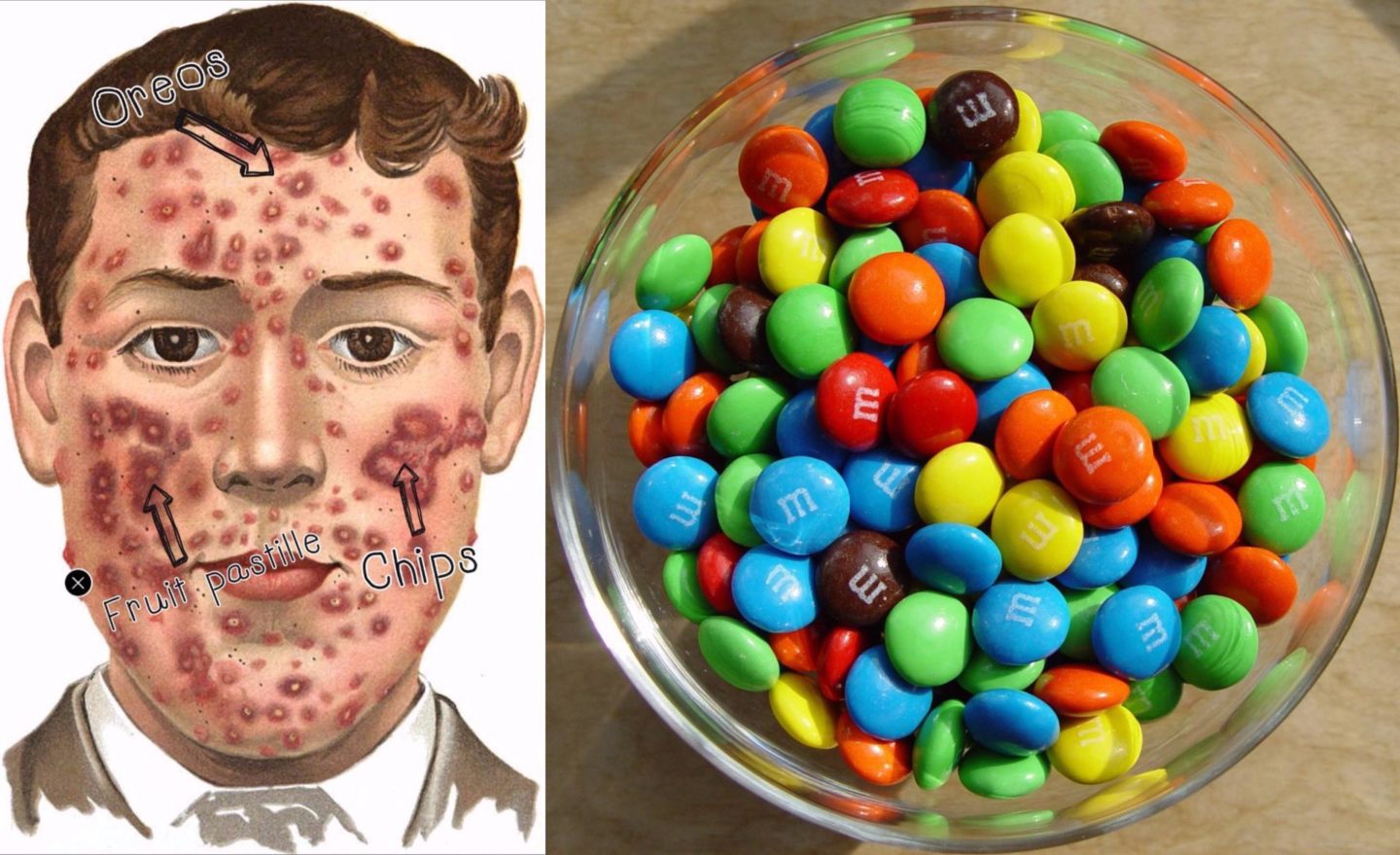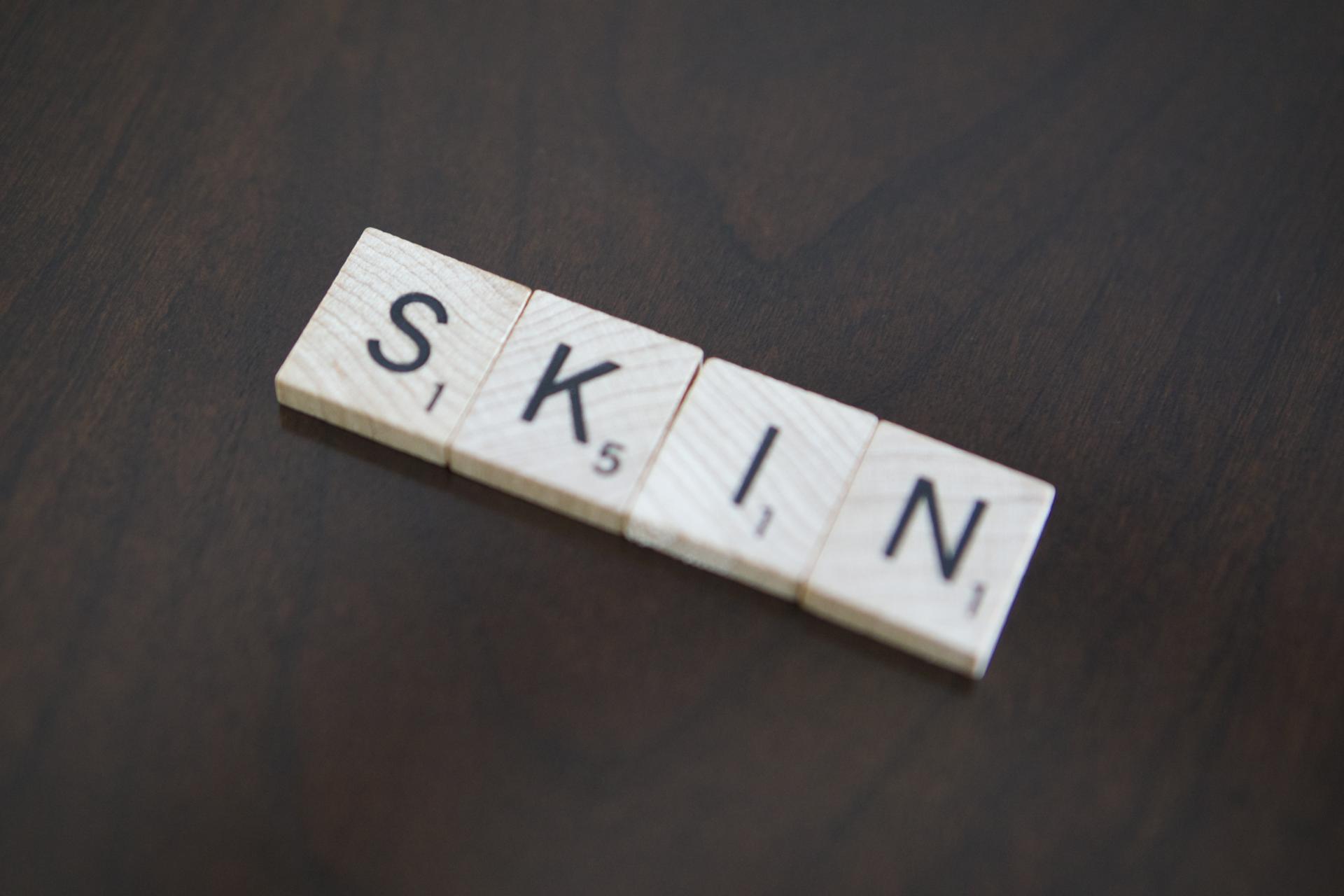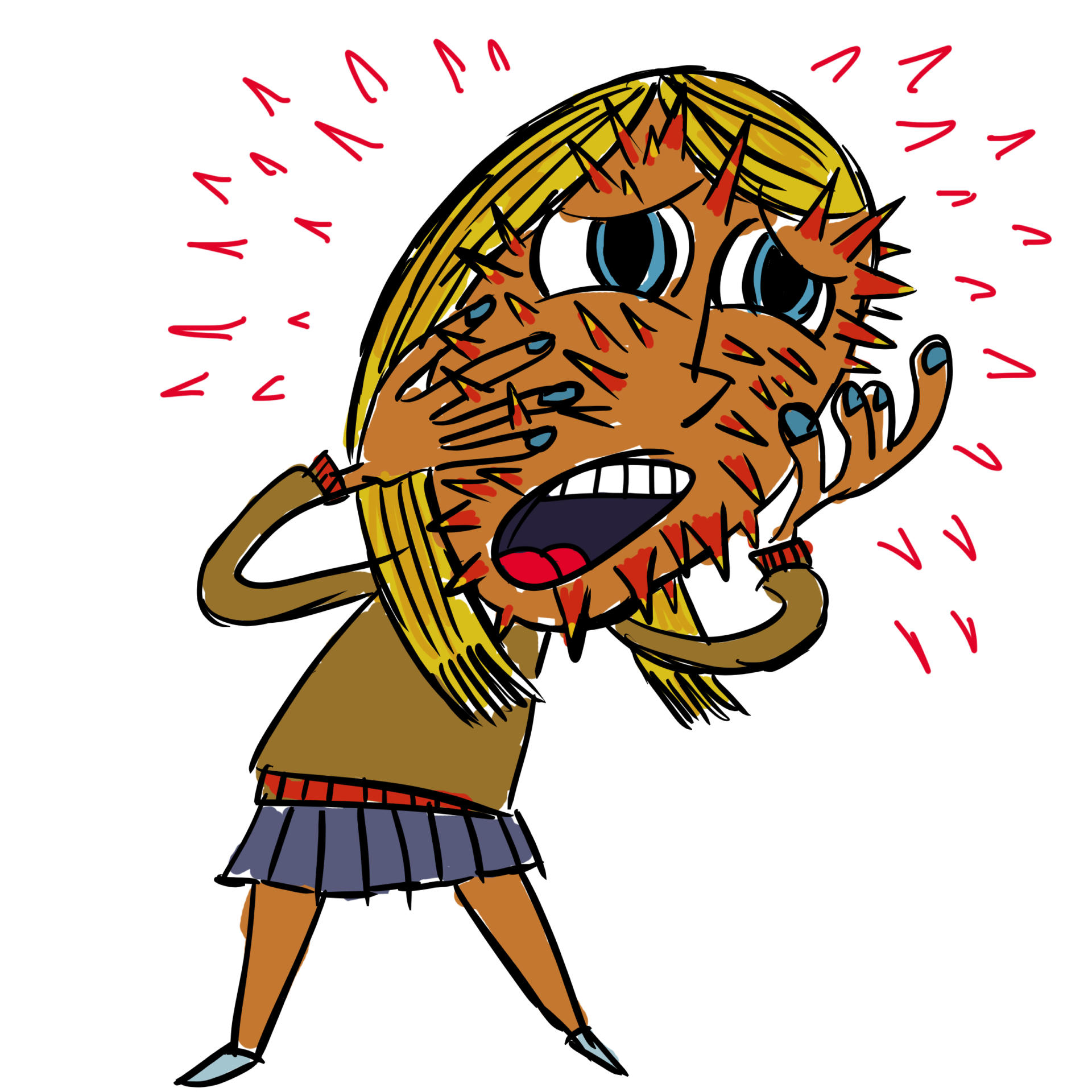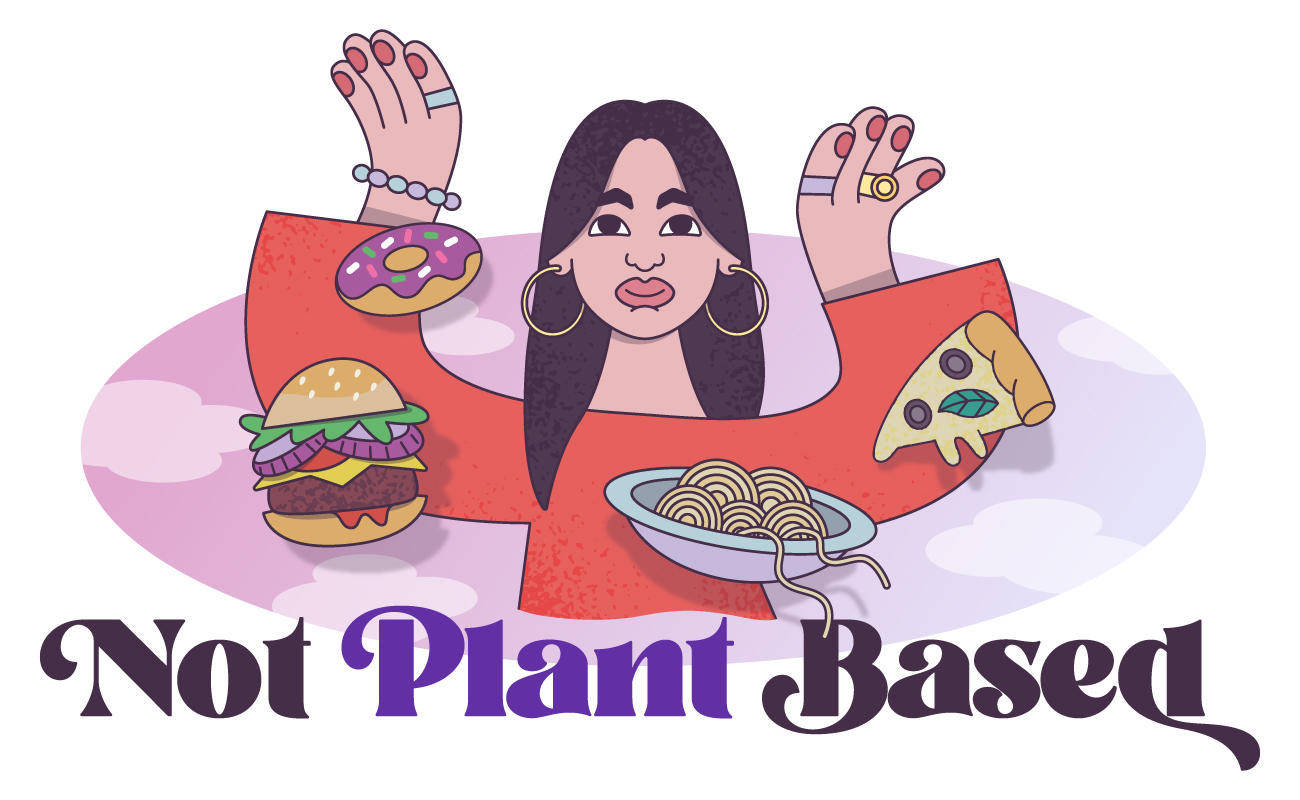
In the latest instalment of; “Eve pays attention to incorrect information and screws herself over in the process”, I shall discuss an irritable, itchy – occasionally leaky – friend of mine. Mr spot. I use the title Mr, as only a male of the species could be stubborn, painful and irritating one minute; and disappear completely the next. I’ve always been relatively lucky with the state of my skin. Acne was never an obstacle, yet the odd puss-fulled monstrosity would make a starring appearance on my T-Zone roughly once every month. As with every imperfection, the familiar feeling of shame and disgust would follow quickly, and I’d soon be asking everyone – including my waxist – for answers. Add to this underlying fear of rejection a societal obsession with diet and what do you get? A very thin and undernourished Eve.
Just as my eating disorder decided to stick its oar in, a girl at work informed me that there was an entire cupboard full of foods she “couldn’t” eat as they “gave” her spots. Growing up, any hormonal break-out was always attributed by various well-intentioned adults as the result of; “eating too much crap”. Then, along came the concept of “sugar face” and my logical brain was a total goner. I became totally and utterly convinced that my afternoon Freddo (that Intern lyf) would immediately result in a dramatic break-out of pimples. Little did I know that, according to the science, it was actually pretty impossible that such a situation would EVER happen. Written on the British Dietetic Association website in plain English are the following words: “There is no evidence for a link between chocolate and acne.” HOORAY.

This fact is further supported by the words of actual human dietitian, Kirsten Crothers. “The term ‘sugar face’ is just one which is used in the beauty/online blogging world to describe what they feel someones face looks like when they have a high sugar diet,” she says, “it is NOT a concept used in any reliable medical world.” It’s not just sugar that’s been unfairly vilified for supposed skin-shaming properties. “There is no scientific backing for avoiding whole food groups,” says this could lead also to nutritional deficiencies. Even in studies, it is difficult to pinpoint what is caused by diet alone.”
“SKIN IS ALSO AFFECTED BY ENVIRONMENT, MENTAL HEALTH, AGE, GENETICS & MEDICAL CONDITIONS”
Despite what’s written in the beauty pages of almost every women’s magazine, science says that your diet is pretty unlikely to be the overarching factor in determining the quality of your skin. According to the NHS, there’s no evidence that “diet, poor hygiene or sexual activity play a role in acne”, and given that there’s a gazillion factors that have the potential to affect our beautiful faces, it’s almost impossible to control how our skin will look/feel. “We have to make educated guesses based on the science we know about,” says Kirsten, “skin is also affected by your environment, mental health, age, genetics and other medical conditions.” The skin that you just so happen to be born into, in many ways, kind of determines much of your facial fate, but that’s not to say that aspects of your environment don’t have any impact whatsoever.

1. Diet can reduce your risk of skin cancer: both animal and human studies have shown a link between dietary anti-oxidants and a reduced risk of skin cancer.
2. Being a healthy weight can (in some cases) reduce acne. This is due to hormonal imbalances and/or the effect of ‘insulin resistance’. For those who are insulin resistant (often in Type 2 Diabetes), the body has to produce MORE insulin which can, in some cases, induce acne.
3. Drinking alcohol makes the body and skin dehydrated, leaving the skin looking older and tired. Drinking water can help your skin stay hydrated and prevent it from becoming dry.
4. Due to the supposed link between Insulin and acne; large increases in blood sugar (which in turn lead to a rise in Insulin), could increase your risk of acne. Emphasis on the word “could“.
5. Vitamin A, Vitamin C, Riboflavin, Niacin, Pyridoxine, Vitamin E, Zinc and Selenium ALL influence skin health and, according to the British Dietetic Association; “if you don’t get enough of these it could cause medically recognised skin problems.” However, you get ALL this goodness from a normal, varied and balanced diet, so there’s no need to stress.
The moral of the story? A normal, balanced diet INCLUDING chocolate is the recipe for clear skin. If you’re unlucky enough to be lumbered with the red-headed bastards anyway, try not to give it too much thought. After all, your value has NOTHING to do with what you look like, remember?!



